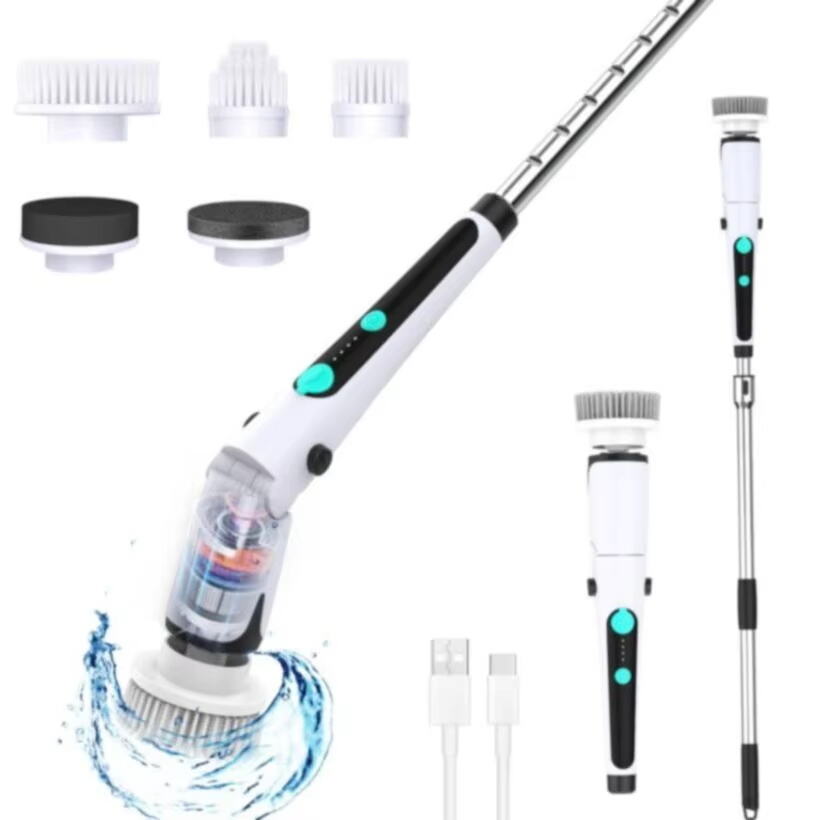Importance and Applications of Electronic Cleaning Brushes
Keeping electronic devices running smoothly requires good old fashioned cleaning brushes designed specifically for electronics. These little gadgets stop dust, dirt, and all sorts of gunk from building up inside our precious tech stuff. Electronics are pretty fragile actually, so they get damaged easily if exposed to water or scratchy materials. That's exactly why having proper cleaning gear matters so much. Take a look at what happens when someone forgets to clean their device regularly dust accumulates on those tiny circuits and eventually causes problems like overheating or even complete system failure. Most people don't realize how important regular cleaning really is until something breaks down. Electronic cleaning brushes aren't just nice to have they're practically necessary for anyone who wants their gadgets to last longer than expected.
Specialty brushes have become essential tools across many different industries when it comes to keeping electronics clean and functioning properly. These particular brushes work wonders on things like circuit boards, sensitive parts, and those tricky optical surfaces that just can't handle rough treatment. Computer technicians rely heavily on them to sweep away dust buildup inside desktop towers, laptop cases, and all sorts of peripheral equipment so computers don't overheat or malfunction. Car manufacturers also make good use of these brushes for tidying up sensor arrays and connector points throughout modern vehicles' complex wiring systems. The medical field represents another critical area where these brushes shine brightly. Surgeons and lab technicians need absolutely spotless conditions for operating on patients or handling diagnostic equipment, and regular brushes simply won't cut it there. Across practically every tech sector out there, these specialized cleaning tools continue proving why they remain so valuable despite all the advances we've seen in recent years.
Key Factors in Choosing Materials for Electronic Cleaning Brushes
Durability and Anti-static Properties
Material selection matters a lot when it comes to electronic cleaning brushes, especially durability. Good quality materials mean the brush stands up to regular use without losing its effectiveness down the road. Real important stuff happens in places where these brushes get used all the time, think manufacturing floors or tech repair shops for instance. Another key factor is how well the materials handle static electricity. Without proper anti-static properties, sensitive electronic parts risk getting damaged by electrostatic discharge, commonly known as ESD. That's why having brushes that prevent this kind of electrical mishap is so essential for anyone doing serious cleaning work around delicate electronics.
Cleaning Efficiency and Safety
How well an electronic brush cleans depends mostly on what kind of bristles it has and how stiff they are. When the bristle stiffness is just right, these brushes can pick up dirt and grime effectively while still being gentle enough on sensitive electronics. Take soft bristle brushes for instance they work great on things like sensor arrays and connection points where damage is a real concern. Safety matters too. The stuff brushes are made from shouldn't leave behind anything that might mess with electronic components down the road. Getting this material compatibility right helps keep devices working properly over time without unexpected failures caused by incompatible cleaning tools.
Environmental Friendliness and Cost
Going green with materials for electronic cleaning brushes matters more than ever these days. Look out for those eco-labels or certifications when shopping around for these products they really help point us in the right direction. Choosing sustainable options cuts down on environmental damage and fits nicely with most companies' CSR initiatives too. When it comes to money matters, finding that sweet spot between what we can afford and what works well makes all the difference. Sure, buying super cheap brushes seems smart at first glance, but trust me from experience those low quality ones wear out way too fast. Spend a bit more upfront on better made brushes and save headaches later on. And don't forget about bulk purchases either they often come with discounts and keep our stockroom stocked without constant trips back to the store.
Recommended Best Materials for Electronic Cleaning Brushes
Nylon Bristles: Soft and Anti-static
When it comes to electronic cleaning brushes, nylon bristles stand out as a great option because they combine softness with those important anti-static qualities. The bristles actually help protect those delicate electronic surfaces from getting scratched while cleaning, which is why they work so well when dealing with sensitive parts. And let's not forget about that anti-static feature of nylon bristles. It stops electrostatic discharge or ESD from happening, something that can really damage electronics if left unchecked. For places that see a lot of action, like manufacturing facilities or repair shops, these nylon bristles make all the difference in keeping equipment running smoothly without constant breakdowns.
Carbon Fiber Bristles: Highly Conductive and Durable
What sets carbon fiber bristles apart is how well they conduct electricity, something really important when dealing with electronics that get messed up by static shocks. These bristles can actually drain away static charges, which is why tech companies love them in places where building up static might damage equipment or cause safety issues. Beyond just conducting electricity though, these bristles last way longer than most alternatives. They hold up against tough cleaning jobs without breaking down, so maintenance teams don't have to replace them as often. The fact that they withstand repeated use means cleaning tools stay functional much longer, saving money on replacements over time. Many manufacturers report significant cost savings after switching to carbon fiber brushes for routine maintenance tasks.
Natural Bristles: Eco-friendly and Gentle
Natural bristles made from animal hair provide a greener option for people who worry about sustainability issues. Since they break down naturally over time, these bristles don't leave behind plastic waste and actually fit into green living approaches better than synthetic alternatives. What makes them stand out though is how softly they work on surfaces. Electronics technicians especially appreciate this because it cuts down on accidental damage to sensitive parts during cleaning. The natural softness means dirt comes off without scratching anything, which is why many professionals still reach for brushes with real bristles when working on fragile equipment that needs extra attention.
Usage and Maintenance Tips
Proper Cleaning Techniques
Keeping electronic cleaning brushes working well requires some basic maintenance. Start off by giving them a quick rinse under warm water to wash away any dirt or dust particles stuck on the surface. If things get really dirty, a gentle scrub with soapy water works wonders without damaging the bristles themselves. Some folks might want to reach for an anti-static cleaner when handling delicate electronics since these products are made specifically for electronic parts and stop unwanted static from building up during cleaning sessions. And don't forget to check what the manufacturer says about caring for specific brush models too. Different materials such as nylon versus carbon fiber need slightly different treatment approaches according to most makers' recommendations.
Maintenance to Extend Brush Lifespan
To keep electronic cleaning brushes working well for years, proper care matters a lot. Store them somewhere dry where dust won't collect, as moisture and dirt particles can really shorten their life. Check the bristles regularly too. If they start looking worn out or have broken strands, it's time for new ones. Most people find that setting up a regular replacement plan works best. Brushes that get used every day might need swapping out after just a couple months, whereas ones that sit on the shelf most of the time tend to hang around much longer. Following this kind of routine maintenance makes all the difference in extending brush life and keeping them effective when needed.
Conclusion: Choosing the Right Materials Enhances Cleaning
Summary of Key Points
Picking out the right materials for those electronic cleaning brushes makes all the difference when it comes to getting things really clean without messing up sensitive parts. Good quality brushes do a much better job at sweeping away dust and dirt buildup, which keeps gadgets running smoothly for longer periods. The last thing anyone wants is to accidentally scratch or otherwise harm those delicate circuit boards during what should just be routine maintenance work on their equipment.
Final Recommendations for Material Selection
Professionals looking to pick out good materials for electronic cleaning brushes need to think about industry standards alongside what actually works for their particular cleaning jobs. The best choice often lies somewhere between performance and planet friendliness. Some brushes on the market now are made from stuff that doesn't harm the environment so much while still getting the job done right. When shopping around, look at how well different brushes clean versus how green they really are. Most technicians find that brushes with bristles made from recycled plastics work surprisingly well without leaving behind harmful residues. Finding this sweet spot between effectiveness and sustainability helps techs maintain quality results while also doing something positive for the planet over time.
FAQ
What are electronic cleaning brushes used for?
Electronic cleaning brushes are used to prevent the accumulation of dust and debris on electronic devices, which can protect sensitive components and maintain device longevity.
What types of materials are best for electronic cleaning brushes?
Nylon, carbon fiber, and natural bristles are among the best materials due to their respective properties, such as anti-static capabilities, durability, and eco-friendliness.
How do I maintain my electronic cleaning brushes?
Maintain your brushes by rinsing under warm water, using mild soap for deep cleaning, and storing them in a dry, dust-free environment. Regular inspections for wear help extend their lifespan.
Why are anti-static properties important in electronic cleaning brushes?
Anti-static properties protect electronic components from electrostatic discharge, which can damage delicate electronics.


